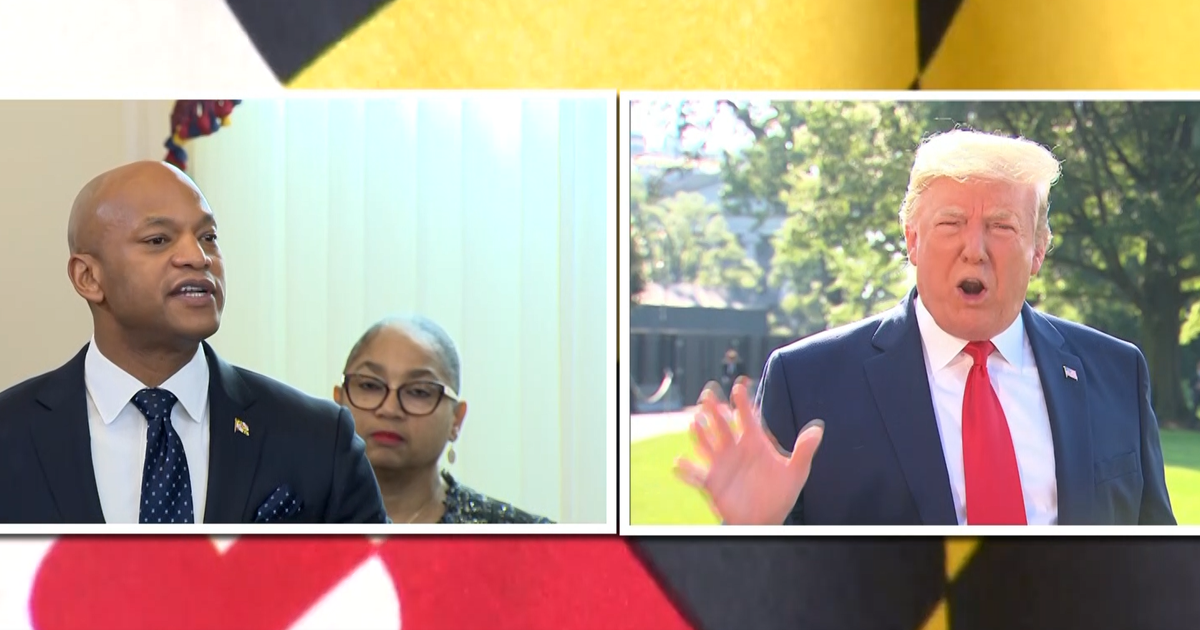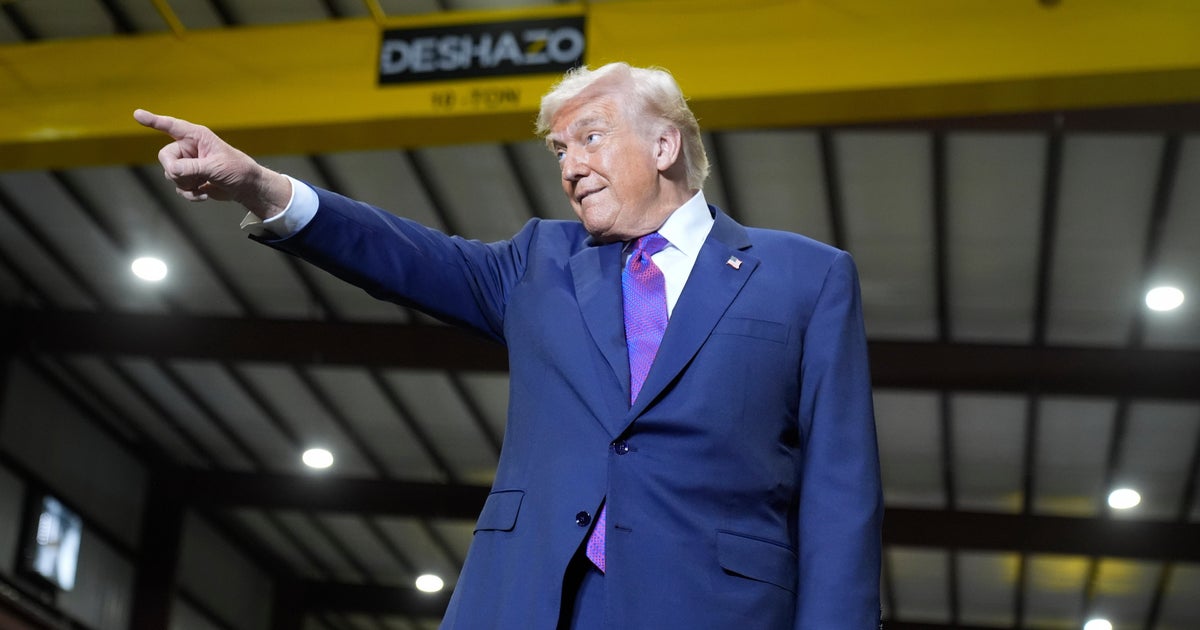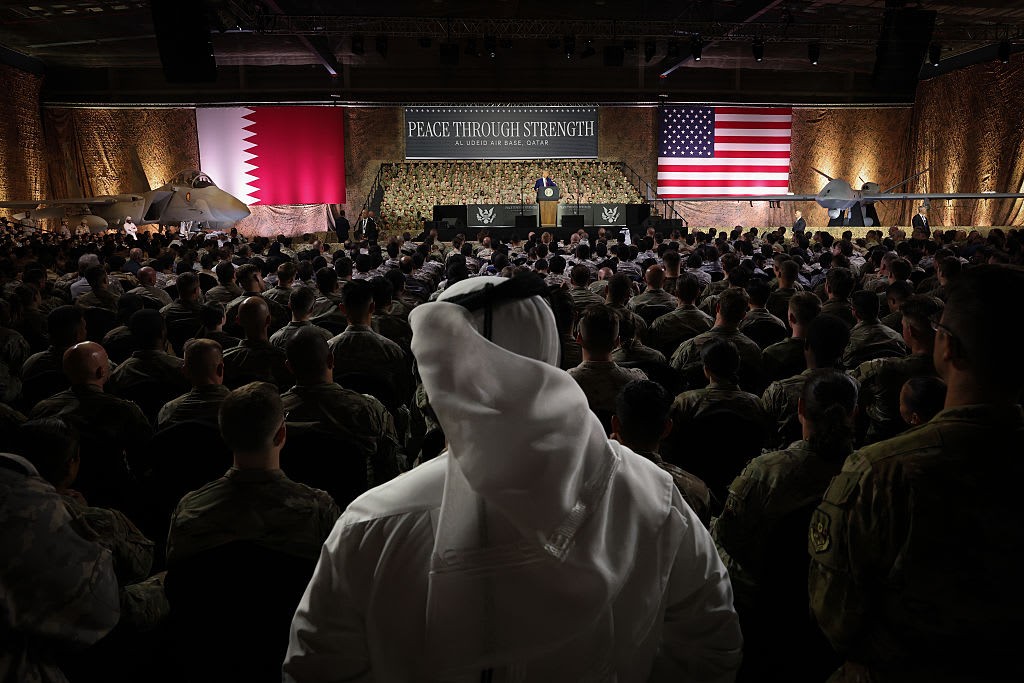Trump accuses Qatar, Mideast host to U.S. troops, of funding terror
WASHINGTON -- President Trump accused Qatar on Friday of funding terrorism "at a very high level," and said solving the problem in the tiny Persian Gulf nation could be "the beginning of the end of terrorism."
"No more funding," Mr. Trump said during a press conference with the Romanian president at the White House.
Launching an extraordinary allegation against a key U.S. military partner, Mr. Trump derided what he called Qatar's "extremist ideology in terms of funding" terrorist groups, an accusation Qatar has repeatedly and vehemently denied. His comments were a forceful endorsement of this week's move by Saudi Arabia, Egypt, Bahrain and the United Arab Emirates to cut off ties to Qatar.
Mr. Trump said Arab leaders he met with in Saudi Arabia last month had urged him to confront Qatar over its behavior.
"So we had a decision to make: Do we take the easy road or do we finally take a hard but necessary action," Mr. Trump said. "We have to stop the funding of terrorism. I decided, along with Secretary of State Rex Tillerson, our great generals and military people, the time had come to call on Qatar to end its funding - they have to end that funding - and its extremist ideology in terms of funding."
Speaking in the Rose Garden, the president said Qatar had "historically been a funder of terrorism at a very high level." Other U.S. officials have said Qatar has already taken some steps to reduce terror funding but that the steps are insufficient.
Qatar's isolation is reportedly in reaction to a false news report planted by hackers on May 23, CBS News justice and homeland security correspondent Jeff Pegues reports.
CBS News has confirmed the FBI is helping Qatar's government investigate a breach of a state-run news outlet that ran the fake story.
According to CNN, the story "attributed false remarks" to the Qatari leader that "appeared friendly to Iran and Israel and questioned whether President Donald Trump would last in office." The FBI has confirmed the hack may have resulted in fake-news sharing and that Russia is a suspect. A top Russian official denied that Russian hackers were behind the fake story.
"Part of Russia's activity is to drive a wedge between the U.S. and our allies, writ large," said CBS News security contributor Frank Cilluffo, adding that the U.S. cannot let the incident undermine its relationship with Qatar, which hosts the largest American military base in the Middle East.
"U.S. presence in Qatar is so critical to our campaign against ISIS and our aerial campaign in the region," Cilluffo said.
It wasn't immediately clear how Mr. Trump's sharp condemnation might affect U.S. cooperation with Qatar, which hosts some 10,000 U.S. troops and a major U.S. air base that serves as a staging ground for operations in Syria, Iraq and Afghanistan. The Qatari Embassy in Washington did not immediately respond to a request for comment.
Only an hour before, Tillerson had issued a very different message, calling on the Arab nations to immediately ease their blockade on Qatar.
"The blockage is hindering U.S. military action in the region, and the campaign against ISIS," Tillerson said, using an acronym for the Islamic State of Iraq and Syria. Tillerson has been tapped by Mr. Trump to help mediate the crisis.
Tillerson, too, faulted Qatar for allowing funds to flow to extremist groups, but in terms that were much less severe. Tillerson said the U.S. was asking Qatar to "be responsive to the concerns of its neighbors."
"Qatar has a history of supporting groups that span the spectrum of political expression, from activism to violence," Tillerson said. He credited Qatar's emir with making progress in curbing financial support and expelling terrorists, but added: "He must do more, and he must do it more quickly."
Tillerson, speaking at the State Department, said the U.S. would help support efforts to mediate the crisis, along with Kuwait - another Gulf country that has stepped up to try to broker a resolution. Urging all sides to avoid further escalation of the conflict, Tillerson said the elements were available to resolve it.
Yet Tillerson's plea to Qatar's neighbors to pull back their efforts to isolate the tiny gas-rich nation marked a shift from previous statements by the Trump administration. Earlier in the week, Mr. Trump took to Twitter to take credit for the Saudi-led move to punish Qatar, saying it could be the start of the end of terrorism in the Middle East.
"So good to see the Saudi Arabia visit with the King and 50 countries already paying off," Mr. Trump said. "They said they would take a hard line on funding extremism, and all reference was pointing to Qatar. Perhaps this will be the beginning of the end to the horror of terrorism!"
Since Saudi Arabia and other nations cut off diplomatic relations with Qatar on Monday, triggering the worst diplomatic crisis in the Gulf in years, the U.S. military has insisted that it would not affect U.S. military operations in the region.
But Tillerson said the crisis was indeed affecting the U.S. military.
Qatar has long denied supporting or funding terror groups. But Western diplomats accuse Qatar's government of allowing or even encouraging the funding of some Sunni extremists, such as al Qaeda's branch in Syria.
Tillerson's efforts to mediate came as Qatar's neighbors put 12 organizations and 59 people on a terror sanctions list and described them as being associated with Qatar, in a fresh attempt to increase pressure. Qatar dismissed the terror listing as part of "baseless allegations that hold no foundation in fact."



